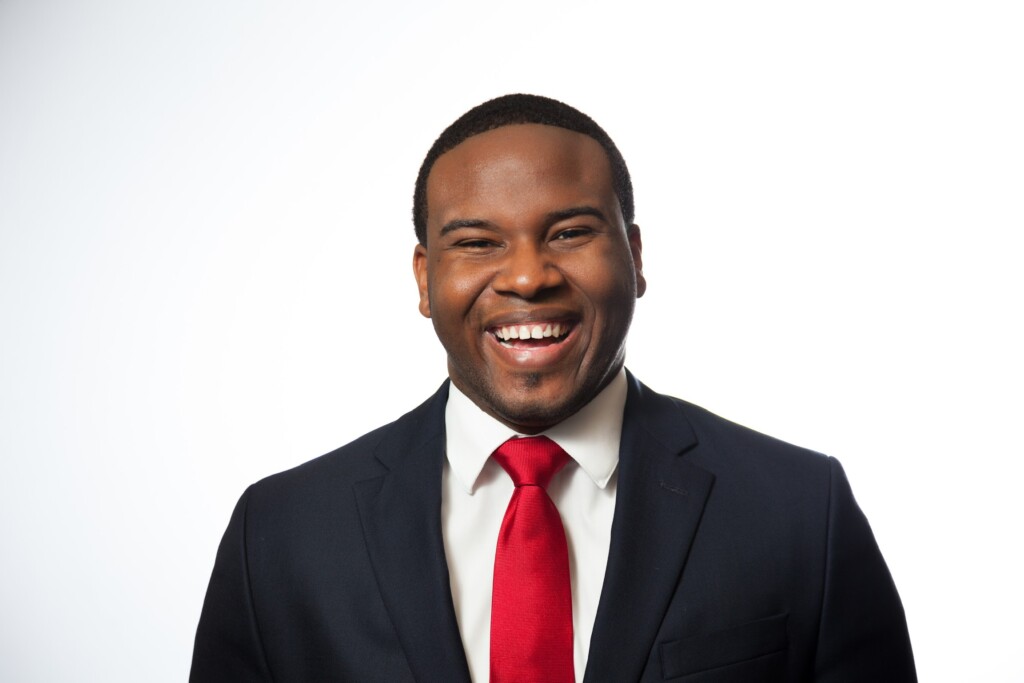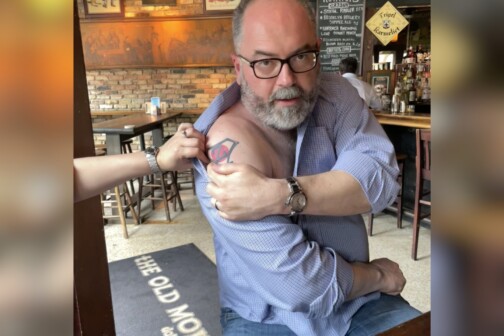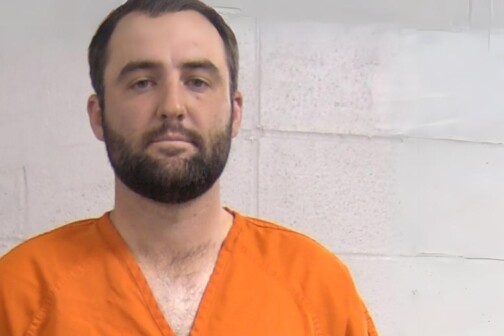Five years after Botham Jean was shot and killed in his apartment by an off-duty Dallas police officer, Allissa Charles-Findley says healing from the loss of her brother is still very much a work in progress.
On September 6, 2018, Jean was shot by Amber Guyger in his South Side Flats apartment. Both lived in the building. Guyger said she mistakenly thought that she was in her own apartment and believed Jean to be an intruder when she shot and killed him. She was convicted of murder in 2019, and was sentenced to 10 years in prison. Last November, the U.S. Supreme Court declined to review her case.
The family has an ongoing lawsuit against the city and Guyger. No court date has been set, but last month both sides argued over pre-trial motions related to which experts would be considered qualified to testify and what testimony or evidence might be excluded.
A second suit against South Side Flats and its owner, Waterton Residential, was also filed, alleging that the poor design and signage as well as faulty door-locking mechanisms contributed to Jean’s death. First filed in federal court, the case was later sent to Dallas County district court, and is set to go to trial on Oct. 17.
But all of this is available in news accounts and court documents. More than anything, Charles-Findley wishes that the world understood what it lost when the bullet from Guyger’s gun changed her life and took her brother’s.
“The world lost a light—they lost a game changer. They lost a hero,” she says. “He was my person, but it was so funny—after he passed away and people were reaching out to me, almost everyone introduced themselves as ‘Botham’s best friend.’
“He had so many best friends because he made everybody feel special, like they were the best person.”
Charles-Findley says she struggled to regain her equilibrium after Jean’s death, something that was made more difficult as each new trial, appeal, and deposition picked at a wound. But telling her story was instrumental in taking back some measure of power from the despair she felt.
She told her story in a new book, After Botham: Healing from My Brother’s Murder by a Police Officer. It was officially released yesterday.
“We have a lawsuit against Dallas that is still being fought,” she says. “So we’re nowhere near the end with the grieving. It’s constantly having to be put on hold because there’s no closure. I have to go through depositions and relive the worst time of my life in front of people I know are judging me, and looking for any flaw in what I’m saying. It’s really hard.”
The years following her brother’s death were dark for Charles-Findley. She quit eating. She was angry “at everyone, even God.”
“I lost weight, I didn’t even realize I wasn’t eating,” she says. “I weighed 140 pounds when Botham died and that November, at Thanksgiving, I went on the scale and was 119, and I couldn’t even understand how that happened. I was a ghost. I was a shell of a person.”
She wrote the book after working through that anger, partly with her faith, and partly with a therapist.
“It was the first time I felt close to normal,” she says. “It took me this long to get back to Allisa. It took work. I had to put myself on a schedule to just spend time with God. I had to work on my faith. That was the first thing.”
Charles-Findley says she began praying daily. She set an alarm on her phone to remind herself to eat. Her therapist, she says, was “very instrumental” in helping her begin to heal. But it also took time. Time to grieve, but also time to figure out who she was in a new context, as a sister of a man who meant so much to her, someone who was taken so quickly. He was, after all, her “person.”
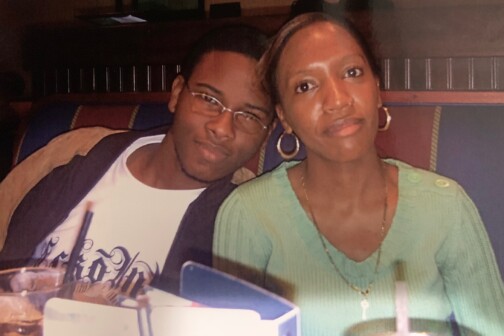
“It took this amount of time for me to recognize myself,” she says. “And it took some time to write this book.”
It’s been five years, but Charles-Findley is still angry at how the investigation unfolded. Despite Guyger’s prison sentence, she says she still thinks that her brother’s case was not investigated fairly.
“When Botham was killed on September 6, 2018, I received a call from Baylor University (hospital) asking me to identify him over the phone because it was a sensitive case,” she says. “And then, when Texas Ranger David Armstrong took over the case, we met with him that following Saturday.”
Charles-Findley says that Armstrong was reluctant to answer any of the family’s questions. “But he volunteered to tell us—the family of the victim—that he believes it was just a horrible accident and no one was at fault.”
Later, a judge ruled that Armstrong would not be allowed to share that viewpoint with the jury that ultimately convicted Guyger.
“I don’t believe he or his team investigated Botham’s murder,” she says. “I believe he investigated to get Amber Guyger off.”
She can list specific instances that she feels shore up that idea, like the search warrant for her brother’s apartment that was requested so investigators could look for marijuana.
“When I first got to Dallas, the story was him singing during chapel at Harding University, and clips of him singing and smiling, so it was hard for them to muddy his reputation,” she says.
The day of his funeral, however, she says the family was alerted to a story about a search warrant being executed for Jean’s apartment, alleging there was marijuana present. “Once again, they were trying to muddy the profile of the victim to justify his death,” she says. Her brother, who worked with disadvantaged kids back home in Saint Lucia, shied away from trouble. He had intentionally stayed home the night he was shot, choosing to watch the Cowboys game in a place he felt safe.
Charles-Findley says that even before the funeral, Armstrong requested permission to use her brother’s thumbprint to open his phone so he could search it. She says he also later attempted to take back Jean’s car after the family returned it to the dealership.
“And I’m like, ‘Why are you investigating my brother?’” she says. “They really, really tried to investigate the victim to come up with any reason to justify his murder.”
The family is suing the city and Guyger, alleging, in part, that the city could have done a better job of training officers on when to use deadly force. The wrongful death suit was filed in 2019, dismissed by a judge, and then a federal judge reversed that decision in 2020.
“Yes we did receive an indictment. Yes, we received a conviction. But the city of Dallas is still fighting us—to the point where it’s almost disrespectful because they refuse to come to the table,” she says. “They refuse to have a conversation with us. Even the current mayor has yet to have a conversation with my family. It only appears to us that they’re covering for their own. They’re backing their own.”
All of this, she says, has informed and propelled her advocacy work. She lobbies lawmakers in hopes of getting problem officers off the streets, pointing to not just her brother’s case, but also cases like George Floyd and Eric Garner.
“I push for certification of police officers, so that if a police officer has been found to use excessive force, they are not only fired from that police department, but are also decertified so they cannot go to another department in a neighboring county or another state and get hired,” she says. “When you look at all the victims of police brutality, often the officers involved are officers who have had a record of excessive force.”
And some of those officers, she says, end up training new officers, perpetuating the cycle.
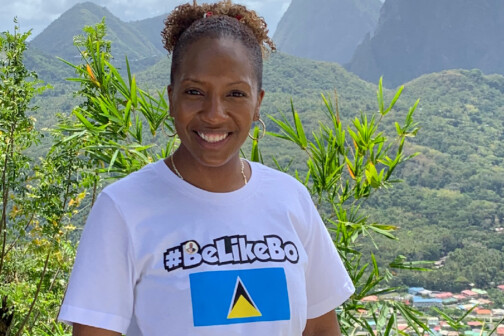
In addition to a foundation set up in her brother’s name, Charles-Findley also works with the nonprofit Sisters of the Movement, which supports families of people killed by police. She was driven to join the group because she knows how hard it is to navigate life after your loved one is killed by a police officer. Its members helped her.
“You see a news story and think of how you’d handle it if it happened to you,” she says. “Then when it actually happened, I was nowhere prepared. I was lost for a while. Even close friends and family members kind of kept their distance because a lot of people just don’t know what to say to you.”
But other families who lost a loved one in a police incident did, including Tiffany Crutcher, the sister of Terence Crutcher, who was killed by Tulsa police officer Betty Shelby in 2016.
“That really helped, because here I was, speaking with someone who knew exactly how I felt,” she says. “I didn’t have to explain.”
When Atatiana Jefferson was killed in her Fort Worth home in 2019 by officer Aaron Dean, Charles-Findley reached out to her family. She speaks to Jefferson’s sister, Ashley Carr, “almost every day.” She attended the funeral of Jefferson’s other sister, Amber Carr. She has also forged relationships with the families of DJ Henry, Sean Bell, and Antwon Rose.
“We just have this bond,” she said. “To me, they’re family now.”
Despite everything, Charles-Findley says she still feels there is a place for policing—she just wishes it was done better.
“I’m not anti-police at all,” she says. “But I believe that police officers are not above the law. And if they break the law, they should be held accountable.”
Charles-Findley’s book is now on sale, and can be found locally at the Pan African Connection, Barnes and Noble, and Target. It is also available online. On September 30, the Botham Jean Foundation’s Red Tie Gala will be held at the Renaissance Hotel in Addison.
Author



